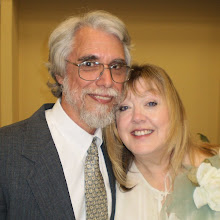It's been said that you don't have to feel anything to show love. A corollary to that is you don't have to like someone to behave in a loving way toward them. I think the influence of that kind of teaching has done a lot of harm.
Here's how it would play out at street level. The loving one would grit his teeth, steel his nerves and commit love upon his neighbor. He believes it is his duty to love the unlovable and so he prays for strength and does his duty. As if love were a one-way stream that flows from a higher person to a lower one.
In reality when we talk about loving the unlovable we are talking about comparing one person with another. Us and them. It's an old story. "You are less lovable than I am, but I'm going to prove to you I am big enough to love you anyway."
But how can a person created by God be unlovable? And even if they were how would I know I am the more lovable? The fact is a human being, made in God's image, can only be called unlovable if he is viewed through the eyes of judgment. How do I know this? Because I have done it. I have a lifetime of experience doing it. I habitually view people through half-closed eyes, not seeing. Then I try to calculate and map out a strategy of well-doing toward this one or that one—all the while negating, out of fear, any possibility of real relationship.
So what am I proposing? It's hard to put into words so here's a little story.
About a year ago I was having a conflict with a new friend that involved some misunderstandings and some hurt feelings. After I was forgiven and had some time to mull it over I realized there came a point in time when I saw her for the first time, as it were. Prior to that time I had seen her, if you will, as a kind of character in a docudrama I was writing in my head. Does that sound crazy? Well, it was crazy.
But I realized that's the way my head worked. (Do I hear any co-confessions?) I rarely stopped to see who the person really was but instead made up stories in my head, based on pre-conceived notions, to fill in the gaps. Maybe that's more interesting, but it's certainly not more loving.
So how shall I see the person who is standing there right in front of me? How shall I see him or her with a view that will foster warm, human God-filled two-way love? That's not a question easily answered but maybe this would do for a start.
Realize we are standing on the same ground.
And God is just as far—and just as close to each as to the other.
skip to main |
skip to sidebar
A universal resource. Free and freely available to every race, culture
and language group in every place and at all times.
What is Love?
A universal, self-validating standard for life and living. The greatest commandment. All we need, all we want. The destination, the journey and the vehicle we travel in.
What is Open Source?
A system of software (and other) development in a non-proprietary environment—source-code is freely available for inspection and improvement. Open source tradition fosters cooperation in a way never seen before in the world of technology.
What is Open Source Love?
A parable, a metaphor, an inside joke? All these and more.
If you have something to add, add it. If it is something big let me know.
More about Open Source Love.
More about Open Source Love.
Some of my Favorite Books
Friends and Friends of Friends
From my other blog
About Me
Blog Archive
-
▼
2007
(22)
-
▼
February
(13)
- Love and Law
- Surprise! You are Loved
- Faith, the Proper Response to Love
- When Does Love Stop Loving?
- Agape and Eros: Mortal Enemies — or not?
- Love is Everything
- Love is First
- Cold Hard Love?
- The Dark Side
- As Yourself
- Love the One You're With - Revisited
- Love, the Kernel of Natural Law
- An Open Source Operating System for Humanity
-
▼
February
(13)

No comments:
Post a Comment